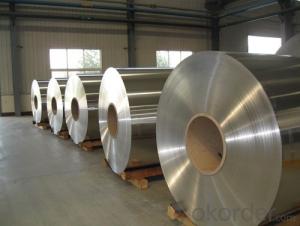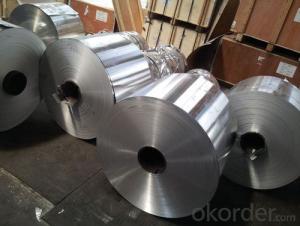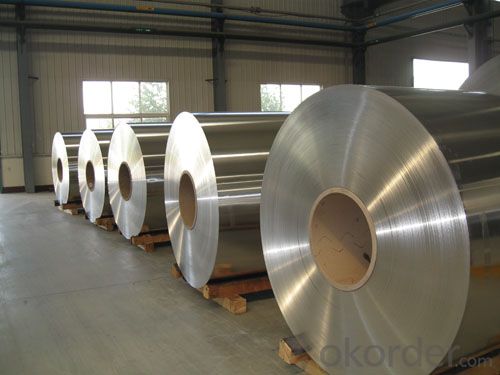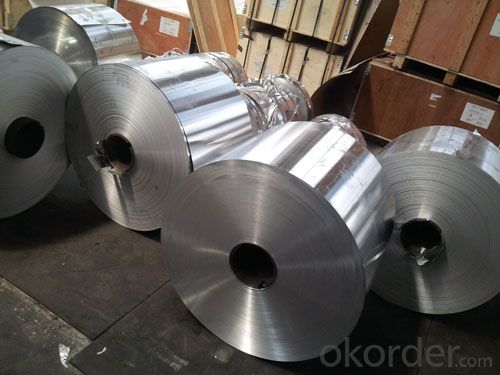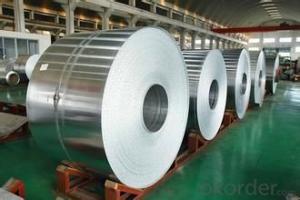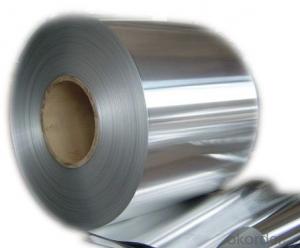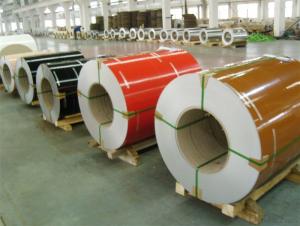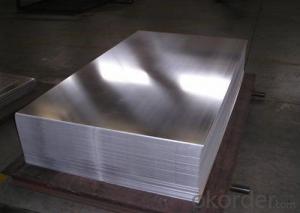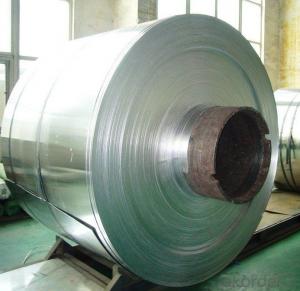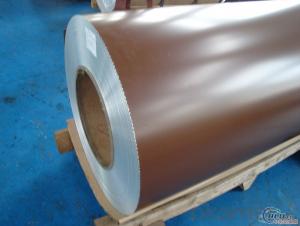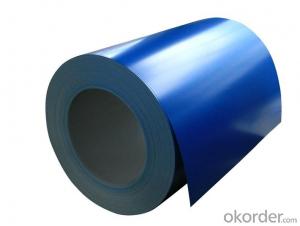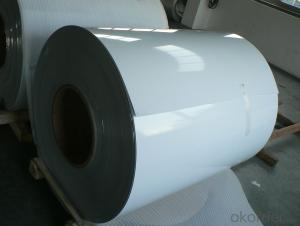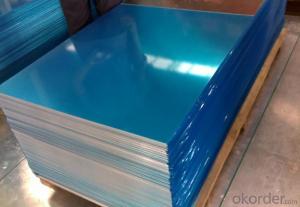1050 Aluminum Coils PVDF Color Coated Aluminum Sheet for Automobile Parts
- Loading Port:
- Shanghai
- Payment Terms:
- TT OR LC
- Min Order Qty:
- 1 m.t.
- Supply Capability:
- 60000 m.t./month
OKorder Service Pledge
OKorder Financial Service
You Might Also Like
Specification
PVDF Color Coated Aluminium Sheet For Automobile Parts
Specifications
Standard | GB/T3190-2008, GB/T3880-2006, ASTM B209, JIS H4000-2006 .etc |
Thickness | 0.2-8.0 mm aluminium 7075 t6 |
Width | 1250mm 1000mm 1219mm or as your requirements |
MOQ | 8 Ton |
Package | Standard export package, by wooden box or as required. |
Application | 1060 is widely used in the strength requirements of the product. Products commonly used in signs, billboards, building exterior decoration, bus body, high factory wall decoration, kitchen sink, lamp, fan, electronic components, chemical apparatus, sheet processing, deep drawing or spinning hollow ware, welding parts, heat exchangers, Bell surface and plate, plates, kitchen utensils, accessories, safety equipment and other. |
Characteristics
1) Excellent weather-proof durability
2) Anti-ultraviolet
3) High erosion resistance
4) Stable color and gloss
5) Good mechanical processing performance
6) Abrasion resistance
7) Anti-impact
8) High flexibility
Coating varieties
Polyester Coatings (PE)
PE (polyester) coatings exhibit an excellent combination of hardness, flexibility, flow, appearance, and superior resistance to dirt retention in indoor and outdoor applications. These coatings are highly resistant to abrasion, metal marking, staining, and marring, and require minimal maintenance. Glazetech uses polyester paints which provide excellent colour and gloss retention properties.
Polyvinylidene Fluoride Coatings (PVDF)
PVDF (polyvinylidene fluoride) is a chemical resistant thick film barrier coating commonly used in architectural applications where both excellent appearance and substrate protection must be maintained over a long period of time. This coating is unaffected by most chemicals and solvents and has excellent wear and abrasion resistance. PVDF also has a high dielectric strength, excellent resistance to weathering and the ability to self extinguish.
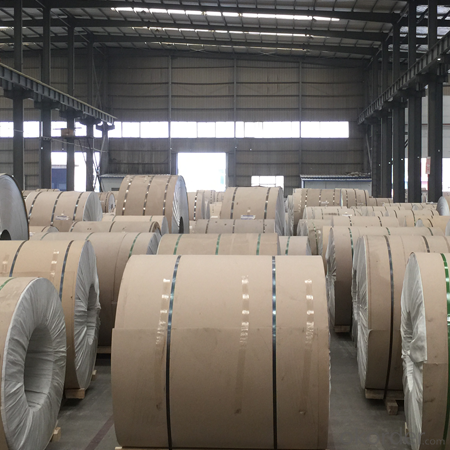
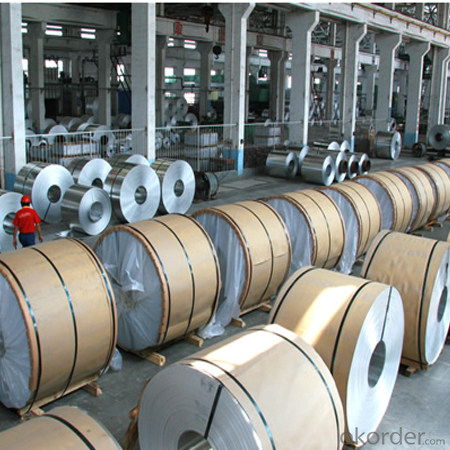
- Q: To put aluminum heads on my car do i have to add other things or basically can i just get them and put them on
- Aluminum heads will warp the first time the engine accidentally overheats. Why would you go with aluminum?
- Q: How do aluminum coils contribute to sustainable transportation?
- Aluminum coils play a crucial role in promoting sustainable transportation in several ways. Firstly, aluminum is a lightweight material, making it an ideal choice for various components in vehicles. By replacing heavier materials such as steel, aluminum coils help to reduce the overall weight of the vehicle. This, in turn, improves fuel efficiency and reduces greenhouse gas emissions. Furthermore, the use of aluminum coils in vehicle manufacturing helps to enhance the durability and longevity of the vehicle. Aluminum is highly resistant to corrosion, which is particularly beneficial in areas with harsh weather conditions or high levels of road salt. This longevity means that vehicles made with aluminum coils require less frequent repairs and replacements, reducing the amount of waste and resources consumed over the lifetime of the vehicle. In addition, the recyclability of aluminum is another significant factor in sustainable transportation. Aluminum is one of the most recyclable materials on the planet, with almost 75% of all aluminum ever produced still in use today. By using aluminum coils, manufacturers can incorporate recycled aluminum into their production processes, reducing the need for primary aluminum extraction. This not only conserves natural resources but also reduces energy consumption and greenhouse gas emissions associated with aluminum production. Moreover, aluminum coils contribute to sustainable transportation by enabling the advancement of electric vehicles (EVs). The lightweight nature of aluminum helps to improve the range and efficiency of EVs by reducing their energy consumption. Additionally, aluminum's excellent thermal conductivity allows for better heat dissipation in EV batteries, enhancing their performance and lifespan. Overall, the use of aluminum coils in transportation supports sustainability efforts by reducing vehicle weight, improving fuel efficiency, increasing durability, promoting recycling, and enabling the growth of electric vehicles. As the transportation sector continues to strive for reduced emissions and increased efficiency, aluminum coils will continue to play a vital role in achieving these sustainability goals.
- Q: How are aluminum coils used in the production of medical equipment?
- Aluminum coils are widely used in the production of medical equipment due to their unique properties and versatility. One of the primary applications of aluminum coils in the medical industry is in the manufacturing of various medical devices, such as MRI machines, X-ray machines, and ultrasound equipment. Aluminum coils are utilized in the production of medical equipment mainly because of their excellent conductivity. This property allows them to efficiently conduct and dissipate heat, which is crucial for the proper functioning of medical devices. For instance, MRI machines generate a significant amount of heat during operation, and aluminum coils help in regulating and maintaining the desired temperature to ensure optimal performance and patient safety. Moreover, aluminum coils are also highly malleable and can be easily formed into different shapes and sizes. This makes them ideal for the production of medical equipment, where intricate designs and precise specifications are often required. For example, aluminum coils are used in the construction of radiation shields, which protect medical personnel and patients from harmful radiation emitted by X-ray machines. In addition, aluminum coils are lightweight yet durable, making them an excellent choice for medical equipment that needs to be portable or easily maneuvered. This is particularly important for devices like portable ultrasound machines, where lightweight components are necessary for ease of use and transportation. Furthermore, aluminum coils have excellent corrosion resistance, which is vital in the medical field where cleanliness and hygiene are of utmost importance. The resistance to corrosion helps in preventing the buildup of bacteria, germs, and other contaminants on the surface of medical equipment, ensuring a safe and sterile environment for patients and healthcare professionals. Overall, aluminum coils play a crucial role in the production of medical equipment by providing properties such as conductivity, malleability, lightweight, durability, and corrosion resistance. These properties allow for the efficient and safe operation of medical devices, contributing to improved patient care and well-being.
- Q: Are aluminum coils resistant to UV radiation?
- Yes, aluminum coils are generally resistant to UV radiation. Aluminum has a natural oxide layer that provides protection against UV rays, making it highly durable and suitable for outdoor applications.
- Q: This question asks about the potential health impacts of aluminum coils, which are commonly used in various industries and products.
- <p>Aluminum coils themselves are generally considered safe and do not directly affect health when used in their typical applications such as construction, electrical components, or food packaging. However, there is ongoing debate about the potential health risks of aluminum exposure, particularly when ingested. Some studies suggest a link between aluminum and neurological disorders like Alzheimer's disease, though this is not conclusively proven. It's important to note that aluminum is a common element found naturally in the environment, and the human body can naturally excrete small amounts. The use of aluminum coils in food packaging is regulated to ensure safety, and the risk of aluminum toxicity from these sources is considered low.</p>
- Q: How long do aluminum coils last?
- The lifespan of aluminum coils can vary depending on various factors such as usage, maintenance, and environmental conditions. However, on average, well-maintained aluminum coils can last anywhere between 15 to 20 years.
- Q: This question asks for an explanation of the various materials used for coating aluminum coils.
- <p>Aluminum coil coating materials can be categorized into several types, including: 1. Organic coatings, such as polyester, acrylic, and polyvinylidene fluoride (PVDF), which offer good weather resistance and color stability. 2. Inorganic coatings, like fluoropolymers, which provide exceptional chemical resistance and high-temperature stability. 3. Metal coatings, such as zinc or other metals, used for enhanced corrosion resistance. 4. Ceramic coatings, which are known for their high durability and resistance to heat and chemicals. 5. Laminates, which combine multiple materials for specific performance characteristics. These coatings are chosen based on the intended application of the aluminum coil, such as in construction, automotive, or packaging industries.</p>
- Q: What is the bending radius for aluminum coils?
- The bending radius of aluminum coils is subject to variation depending on various factors, including the thickness and temper of the aluminum, as well as the specific alloy employed. In general, aluminum coils possess a high level of ductility and malleability, enabling them to be bent to a relatively tight radius in comparison to other materials. Nonetheless, it is crucial to refer to the manufacturer's guidelines or specifications for the particular aluminum coil in use to ascertain the recommended bending radius. Doing so will guarantee that the bending procedure remains within the material's limits, preventing any undesirable deformation or damage.
- Q: This question asks for the current market price of aluminum coils.
- <p>The price of aluminum coils can vary significantly based on factors such as grade, thickness, width, and market conditions. As of my last update, prices fluctuate daily due to global supply and demand, economic indicators, and geopolitical events. For the most accurate and up-to-date pricing, it's best to consult with metal suppliers or check commodity exchanges like the London Metal Exchange (LME). Prices are typically quoted in dollars per metric ton and can range from a few thousand to several thousand dollars depending on the aforementioned factors.</p>
- Q: I need to make aluminum powder that is fine! I don't have a mill to use or something like that. If I fill literally the whole coffee blender, will that get it fine? I want to make an ok amount of it. I tried to use sand paper which makes it as fine as I want it but takes a while of sanding.
- How To Make Aluminum Powder
Send your message to us
1050 Aluminum Coils PVDF Color Coated Aluminum Sheet for Automobile Parts
- Loading Port:
- Shanghai
- Payment Terms:
- TT OR LC
- Min Order Qty:
- 1 m.t.
- Supply Capability:
- 60000 m.t./month
OKorder Service Pledge
OKorder Financial Service
Similar products
Hot products
Hot Searches
Related keywords
